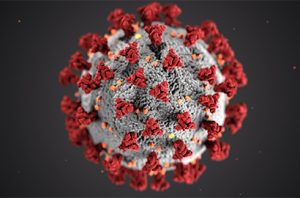The risks that are being taken for science throughout the human history have always been the cause of a controversy about the inconveniences of conducting dangerous scientific experiments even though the consequences can be benefitial for humanity. However, who can reject being genetically advantaged or having immunity to fatal diseases?
In my opinion, we are wasting lots of opportunities by not taking some of the necessary risks. If some experiments are not going to cause a mass destruction, they should be able to bend some parts of the Science Ethics Law, which is quite strict. As an example of this, the Commonwealth Scientific and Industrial Research Organisation (CSIRO) is one of the countless organisations that are searching for a vaccine for Corona pandemic caused by SARS-CoV-2 virus today. They finally got the permission to work on animals for the vaccine from World Health Organisation (WHO), in spite of the fact that they have been working for months. On the other hand, would not it be more practical if they got the permission earlier, so that they could work on living animal cells? I am sure that everyone thinks risking some laboratory animals is a payable price to save thousands, even millions of people. Not only animal lives, but also human lives that we are talking about.

Every scientist would agree with this idea at this point. Just to give an example, Isaac Newton used an unbelievable method to probe the nature of colors, he stuck a needle into his eye socket. He could easily become blind if his theories were wrong, but he took the risks and tested visual phenomena. Of course with modern technology, we do not need to use such kind of methods but these risks are the reason that we came this far.
Some people might not agree with my ideas and state the risks of experiments as a fact to object the truth about risk managing. What I would like to mention is the simple risk management: if the result that we would like to reach have advantages than disadvantages and the risks are not extreme, such as extinction of organisms, then we should take them in order to improve our knowledge of science. For example, we, as humans, had already known the risks of genetically modifying the living organisms such as changing the enviroment, however, this was not enough to prevent the scientific experiments conducted in order to modify the corps and, thanks to this modification, lower the prices for corps. The change in the ecosystem is the price we pay to end the world hunger.

As conclusion, taking some risks is a necessity for the ones who would like to improve their lives with science, the only thing you need is calculating if the risk is worth-taking.

